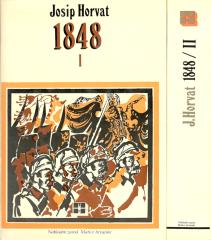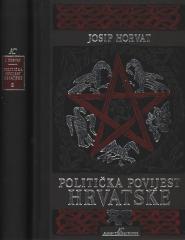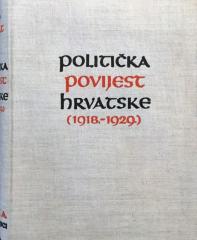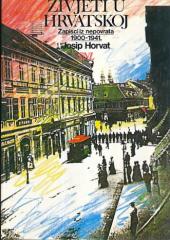Josip Horvat
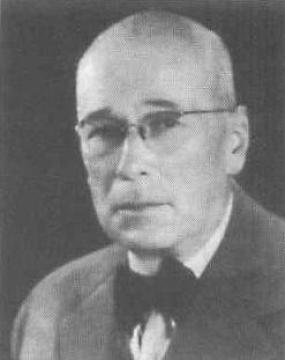
Josip Horvat (Čepin, 15 January 1896 – Zagreb, 6 October 1968) left an indelible mark on Croatian journalism, journalism and history, embodying the spirit of 20th-century liberal thought. Born in a small village near Osijek, Horvat was educated in Zagreb, where he graduated from the Commercial Academy in 1914. As a young man, he immersed himself in the world of journalism, starting to collaborate with Obzor in 1913. His career reached its peak when he took over the role of editor-in-chief of Jutarnji list in 1926, a position he held until 1941. During this period, he shaped public opinion with his liberal views, promoting critical thought and intellectual freedom. The First World War deeply marked his life: he fought on the Russian front, and from 1916 to 1919 he was imprisoned, which deepened his sense of historical and human destinies. During the NDH, he contributed to the work of the Croatian Publishing Bibliographic Institute (HIBZ), collaborating on the Croatian Encyclopedia, often under pseudonyms due to political circumstances. After 1945, under the new regime, Horvat withdrew from public life and devoted himself to research work as a freelance author, leaving behind an extensive opus that still serves today as a key source for understanding Croatian history, culture, and intellectual heritage.
His key works, imbued with erudition and analytical acumen, include:
- Political History of Croatia (1936–1938, 2nd ed. 1989), a major work that traces the political development of Croatia through the centuries, demonstrating Horvat's ability to synthesize complex historical processes;
- Culture of the Croatians through 1000 Years (1939, 1942, 2nd ed. 1980), a comprehensive study of Croatian cultural heritage, from the Middle Ages to the modern era, which demonstrates his passion for cultural identity;
- History of Croatian Newspapers 1771–1939 (1962), a fundamental study of the development of Croatian journalism, in which Horvat demonstrates his expertise and long experience in the field;
- Croatian Panopticon (1965), a collection of portraits of significant historical figures, written with literary elegance and profound insight;
- Living in Croatia 1900–1941 (1984) and Surviving in Zagreb. Diary 1943–1945 (1989), memoirs that provide an intimate insight into the social and political turmoil of the first half of the 20th century, revealing Horvat's ability to capture the spirit of the times.
Horvat's oeuvre, marked by clarity, critical spirit and love for the Croatian people, remains indispensable for the study of Croatian history and culture. His memoirs and diaries, written with a sense of detail and historical responsibility, testify to a man who, despite turbulent times, remained faithful to his intellectual mission. Horvat did not just record history – he lived it, reflected on it and transmitted it to future generations, making his work timeless.
Titles in our offer
1848
The book One Thousand Eight Hundred and Eight (first edition 1934, second 1973) by Josip Horvat is a detailed account of the revolutionary year 1848 in Croatia, a key moment in the shaping of national identity and political consciousness.
Politička povijest Hrvatske
The Political History of Croatia is a monumental work of Croatian historiography that provides a comprehensive and systematic overview of the political development of Croatia from the settlement of Croats in the Balkans in the 7th century to the first hal
Politička povijest Hrvatske (1918. – 1929.)
Živjeti u Hrvatskoj: Zapisci iz nepovrata 1900 - 1941.
The book represents a personal chronicle of Croatian history in the first half of the 20th century, written by Josip Horvat with the intention of documenting the social, political, and cultural changes that shaped Croatia between 1900 and 1941.
